#adam in the emerson role
Text
It's not your typical detective agency -- Blue can bring back the dead with a touch, Adam's a psychic, Noah's a ghost, and their headquarters rests above a cat café. When they're hired to investigate the death of Richard Gansey the III, Blue has to come face to face with the boy she loved, the prophecy that her kiss is destined to kill him, the puzzle of his murder, and his obnoxious best friend.
She and Adam have faced worse before -- or, at least, that's the lie she tells herself.
It's Raven Cycle. It's Pushing Daisies. It's Ronan still being a dreamer. It's Blue's true love kiss curse being in place. It's a finished WIP! Chapter 1/3 in this post!
#blue/gansey#parrish/lynch#bluesey#pynch#pushing daisies au#with blue as ned and gansey as charlotte#adam in the emerson role#and ronan as the witchy aunts#insert cat cafe instead of pie shop and there you have it
16 notes
·
View notes
Text
Aaron Tveit appreciation post.
Movie appearances/roles:
2008-Ghost Town (Anesthesiologist)
2010-Howl (Peter Orlovsky)
2011-Girl Walks into a Bar (Henry)
2012-Premium Rush (Kyle)
2012-Les Misérables (Enjolras)
2013-A Dream of Flying (The Young Man) Short film
2015- Big Sky (Pru)
2016-Undrafted (John "Maz" Mazzello)
2016-Better Off Single (Charlie) Previously named Stereotypically You
2017-Created Equal (Tommy Reilly)
2018-Out of Blue (Tony Silvero)
TV roles/appearances:
2009–2012 Gossip Girl (William "Tripp" van der Bilt III) 10 episodes
2010 Ugly Betty (Zachary Boule) Episode: "All the World's a Stage"
2010 Law & Order: Special Victims Unit(Jan Eyck) Episode: "Beef"
2011 Body of Proof (Skip) Episode: "Point of Origin"
2011 Law & Order: Special Victims Unit (Stevie Harris) Episode: "Personal Fouls"
2011 The Good Wife (Spencer Zschau) Episode: "Executive Order 13224"
2013–2015 Graceland (Mike Warren) Main cast; 38 episodes
2016 Grease Live (Danny Zuko) Television movie
2016 BrainDead (Gareth Ritter) Main cast; 13 episodes
2017–21 The Good Fight (Spencer Zschau) 3 episodes
2019 The Code (Matt Dobbins) 5 episodes
2020 One Royal Holiday (Prince James Gallant) Television movie
2021 American Horror Stories (Adam) Episode: "Rubber(wo) Man Part Two", (Jay Gantz) Episode: "Feral"
2021–present Schmigadoon! (Danny Bailey) Main cast; 6 episodes
Theatre works:
2003 Footloose (Garvin) Merry-Go-Round Playhouse [2003 Regional production]
2004 Rent (Steve, u/s Roger, Mark) US national tour [January – December 2004 National tour replacement]
2005–08 Hairspray (Link Larkin) US national tour [August 2005 – July 2006 First national tour replacement], Neil Simon Theatre [July 18, 2006 – January 18, 2007; April 1 – May 4, 2008 Broadway replacement]
2007 Calvin Berger (Matt) Barrington Stage Company: [July 3–14, 2007 Original regional production]
2007 The Three Musketeers (D'Artagnan) North Shore Music Theatre [August 21 – September 9, 2007 Regional production]
2008–10 Next to Normal (Gabe Goodman) Second Stage Theatre [January 16 – March 16,2008 Original Off-Broadway production], Arena Stage [November 21, 2008 – January 18, 2009 Original Washington, D.C. production], Booth Theatre [March 27, 2009 – January 3, 2010 Original Broadway production]
2008 Saved! (Dean) Playwrights Horizons
[May 10 – June 22, 2008 Original Off-Broadway production]
2008–09 Wicked (Fiyero Tigelaar) Gershwin Theatre [June 24 – November 9, 2008;
January 20 – March 9, 2009Broadway replacement]
2009–11 Catch Me If You Can (Frank Abagnale, Jr.) 5th Avenue Theatre [July 28 – August 16, 2009 Original Seattle production] Neil Simon Theatre: [March 11 – September 4, 2011 Original Broadway production]
2010 Rent (Roger Davis) Hollywood Bowl: [August 6–8, 2010 Limited engagement]
2014–15 Assassins (John Wilkes Booth) Menier Chocolate Factory: [November 21, 2014 – February 8, 2015 Off-West End revival]
2017Company (Robert) Barrington Stage Company: [August 10 – September 10, 2017 Regional revival]
2018–22; 2023 Moulin Rouge!(Christian) Emerson Colonial Theatre: [July 10 – August 19, 2018 Original Boston production] Al Hirschfeld Theatre: [June 28, 2019 – March 11, 2020, September 24, 2021 – May 8, 2022, January 17 – April 9, 2023 Original Broadway production; paused due to COVID-19 , Won 2020 Tony Award for Best Actor in a Musical, Returning for limited engagement in 2023]
Feb. 9-May 12, 2023 Sweeney Todd (title role) Broadway revival, Lunt-Fontanne Theater (replacement)
Source: Wikipedia

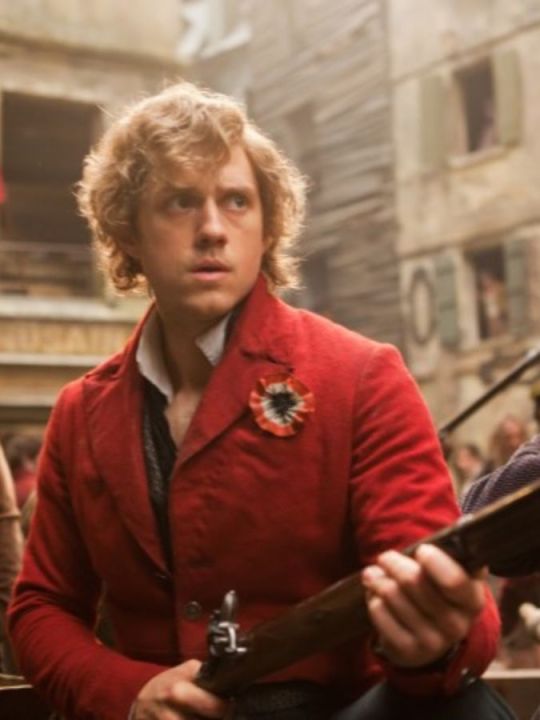


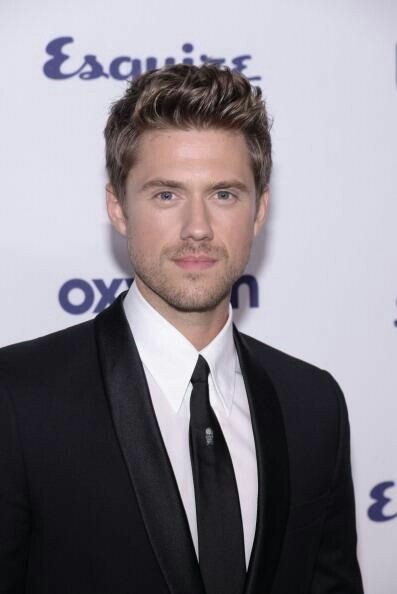
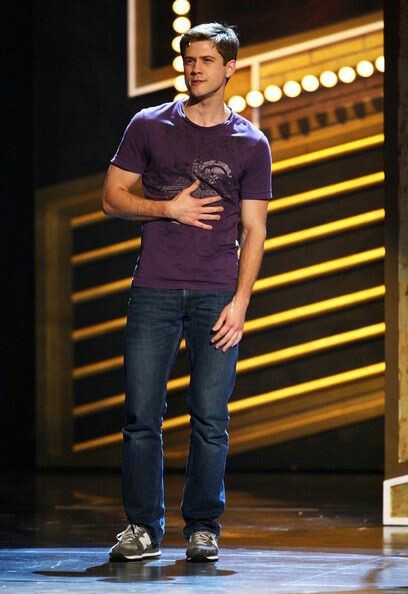
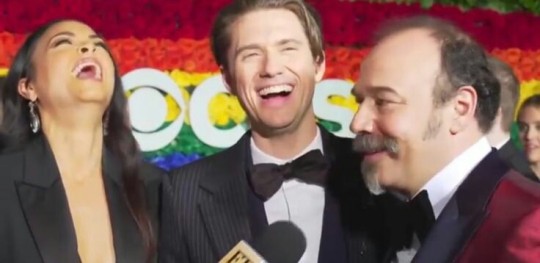


#aaron tveit#musical#les miserables#broadway#graceland#brain dead#next to normal#catch me if you can#hairspray#wicked#moulin rouge#rent#grease#gossip girl
112 notes
·
View notes
Note
What are the eras and respective members of your version of the JSA?
quick note: for the purposes of the narrative, I see the Society as generally being a bigger, more nebulously defined team that the League or the Titans, so I'm not going to list all the members of every versions, just enough to get kind of the vibe of each era across, but just because someone isn't specifically mentioned doesn't mean they weren't there or weren't active. Like, Plas isn't really mentioned, but he's implied by Offspring joining in the Revival Era, par example.
anywho, broadly speaking, there's
the First Wave (pulp adventurer types like Axel Brass, Hark, Rima, Midnight, The Gray Ghost, etc.) that collapsed when many of them were lost in a battle with the future Justice League of a dying parallel universe.
the Golden Age (Diana, Ma Hunkel, Jenny Sparks, Amaya Jiwe, Kent Nelson, Alan, Jay, Carter, Corrigan, Ted Knight, Duardo Montez/Ted Grant, Berto Jimenez/Al Pratt, etc.) that existed up through the early years of the Cold War and Diana leaving for the stars after her battles with Wraith and Maxwell Lord the First
Earth-2's alternate timeline where that didn't happen and the team thrived throughout the 20th and 21st centuries, though the World Army consistently threatens to overwhelm the Wonders of the World. Michael Holt spent some time as this Earth's Mister Terrific after becoming lost in the multiverse, Val-Zod and Lor-Zod are Superman and Superboy, Dick Grayson is Batman, Diana is succeeded by her daughter Donna, Inza Ben-Hassin is Dr. Fate, Jesse Quick and Judy Boom share the role of the Flash in fighting the Legion of Zoom, among other deviations.
The WWIII era team the initially confronted Black Adam in the early years of his (eventually permanent) takeout of his native Kahndaq (membership files redacted by order of the US Government, several alleged members of this iteration became the basis of the infamous Team 7)
Infinity Incorporated, legacies of the Golden Age team (Skyman, Jade, Obsidian, Ruby, Sardonyx, Tomcat, Jesse Quick, Judy Boom, Silver Scarab, Hourman, Dr. Mid-Nite, Nuklon, The Harlequin's Son) unknowingly funded by the Ultra-Humanite's Thorul Society using Sly Pemberton's body as a proxy
The Revival Era led by Courtney Whitmore, bringing together new members like Max Hunkel, Grant Emerson and The Offspring with members of Infinity Inc and surviving members of the original JSA.
Finally, years after the Crisis, Helena Wayne leads the New Golden Age version of the team with members like Tanya Spears, Ky Knight, Cyrus Gold and his grandchildren, Trajectory, Karen Starr, Plastoid, Arclight, The Super-Human, Ayesha Saunders, Limelight, and others.
#dc#headverse#ask#anon#justice society#justice society of america#earth-2#infinity inc#team 7#golden age#new golden age#first wave
13 notes
·
View notes
Note
10 19 30 32 for the writing ask! ❤
Ahh hello! Thanks so much for asking 🥰
10. Top three favourite fic tropes.
Angst (with a happy ending), enemies to lovers, and mutual pining 🙌🙌🙌
30. Describe a fic that almost happened, but then it didn't.
I wanted so badly to write a Pynch Pushing Daisies AU wherein Ronan could bring people back to life and his childhood best friend Adam died a tragic death and they get their posthumous happy ending when Ronan brings him back to life. Blue was supposed to have an Emerson Cod type role as Ronan’s close friend and confidant with a bunch witty one liners. I lost interest mostly because it felt like I was just writing the show.
32. Do you have a word/expression that you always use in your writing?
Not intentionally but I know there's probably something I repeat a lot!!
19. Share a snippet from a wip without giving any context for it.
This one's short but it's gonna go under the cut because it's pretty NSFW 😳
“Oh, sweetheart,” Jordan breathed, caressing his cheek. He leaned into the touch and it felt more intimate than the fact that his face was still between her legs. He kissed the inside of her thigh softly. And then Jordan said, “Fuck me.”
Adam could do that.
2 notes
·
View notes
Text
Hypothetical titles for season sixteen of 88
The academy. Season premiere. Part one. Findlay’s out for Lucia’s blood when she finds out that Barnaby has been accepted into The Cabal Academy in California. First appearance of Winslow Fegley as Barnaby Sullivan and Walker Scobell as Jonah Sullivan.
Orientation. Season premiere. Part two. Sidney accompanies Barnaby to the Academy’s parent and child orientation weekend. With this episode Barnaby Sullivan is downgraded to a recurring role
Three branches. Birch’s team, ACS&Associates and Solaris’s squad band together when the precinct burns down overnight.
Empty nest syndrome. Jonah, feeling suffocated by a very clingy Findlay, sneaks away to Drummond’s apartment in Greenwich to get some time for himself.
Kicking her ass into gear. Drummond admits Findlay back into Melinda’s office to combat her empty nest syndrome. Guest starring Alfre Woodward as Dr Melinda Crenshaw.
Family law. With the precinct rebuilt. The team help Maybelle on a missing persons case involving her ex husband. Final appearance of Paul Rudd as Conrad Rhys. Guest starring Laverne Cox as Maybelle Archer an Liv Hewson as Conrad and Maybelle’s child Mattie Rhys
Mixed doubles. Drummond’s satyr instincts cause trouble when Odessa signs them up for a charity tennis tournament with Lysander and Tina.
Interstate PTA. Still trying to deal with her empty nest syndrome, Findlay makes the mistake of applying for the Cabal Academy’s Parent-Teacher Association. This leads into a crossover that continues into the Cabalibu episode Parents Weekend.
Au naturel. The team takes a case involving a ritualistic murder at a male oriented nudist colony located just outside Long Island Sound. Guest starring Henry Cavill as Christopher Laurent the centaur leader of the Laurie Colly.
The celestial funeral. The Christensen family gathers together to say a last goodbye and renewed hello to Adam and Eve. First full appearance of Matt Lanter and Adrienne Palicki as Adam and Eve Christensen.
Contrition. Findlay has to deal with a seemingly new and improved Eve begging her for forgiveness for the hurt she caused the Five Families
A steely grey Christmas. Midseason finale. Part one. Barnaby has decided to stay at the Academy for Christmas which, naturally, does not go over well with Findlay.
A steely grey Christmas. Midseason premiere. Part two. Odessa, Cain and Derek play a Christmas Carol on Findlay’s dreams to get her out of her holiday funk. Guest starring Lucas Till as Cain Christensen and Daniel Radcliffe as Derek Christensen.
To forgive, benign. Birch’s team works to reunite the werewolf cub with his pack before his pack finds them. This is a crossover episode continuing on from the Cabalibu episode To Were(wolf) Is Human
Running mate. Part one. President DuPont asks Findlay a favour that she feels morally required to turn down. Guest starring Amy Acker, Liz Hurley, Meryl Streep and Anna Sophia Robb as the DuPont family.
Presidents of politics past. Part two . As a compromise. Findlay holds a seance for the DuPont family to help the president decide wether she should run for reelection or not. Guest starring Melissa McCarthy and Kathryn Hahn as Amelia and Marguerite DuPont
The devil wears Manolo’s. Lucia takes over Jonah’s tutelage for the day while Andy is otherwise unavailable causing Findlay no end of stress.
Dry. A run of the mill investigation into a daylight axe murder becomes delicate when the suspect makes their escape through a mosque at the height of wedding season.
A little party never killed nobody. Arlene gets confronted by an old friend at her Fifth Avenue set birthday party. Guest starring Anna Kendrick as Sandra Kilmer
How the other half lives. Arlene tries to prove to Sandra that she hasn’t changed her principles. But it looks like Sandra has an ulterior motive for her visit
Tried, tested and true. Findlays professionalism is put at war with her fangirl inclinations when Emerson Davenport is held hostage along with a focus group. Guest starring Chris Pratt as Emerson Davenport.
My three dads. Odessa gets an welcome surprise when her extremely estranged biological father turns up at the Spratt house. Guest starring Stephen Amell as Matthias Wayne
Solo mission. Season finale. Part one. Drummond takes revenge on Myrna Bale when his biological grandparents are killed in an engineered car crash.
Unlikely allies. Season finale. Part two. Drummond gains some surprising help as his war against Bale reach’s its apex. Guest starring Adrienne Palicki as Eve Christensen. Final appearance of Kristen Chenoweth as Myrna Bale. With this episode Barnaby Sullivan is upgraded back to a series regular
#mine#copyright me#modern fantasy#winslow fegley#walker scobell#alfre woodard#paul rudd#laverne cox#liv hewson#henry cavill#matt lanter#adrienne palicki#lucas till#daniel radcliffe#amy acker#liz hurley#meryl streep#anna sophia robb#melissa mccarthy#kathryn hahn#stephen amell#anna kendrick#chris pratt#kristen chenoweth
1 note
·
View note
Text
Reader
Adams-Bass, V. N., Bentley-Edwards, K. L., & Stevenson, H. C. (2014). That’s Not Me I See on TV . . . : African American Youth Interpret Media Images of Black Females. Women, Gender, and Families of Color, 2(1), 79–100.
The article showcases how portrayals of black women in popular media are perceived by young African-American students. The authors find that an overwhelming majority of the target audience find many images of black women in media offensive, negative and false. The study argues that such trend can have a detrimental effect on how the community views black women and may promote negative stereotypes further damaging the sense of perception of people’s own identity. I found this research highly valuable, as a media creator myself it is important for me to portray demographic groups with accuracy and respect. It is necessary to critically analyze media portrayals and their reception in order to grow and learn from mistakes and implement a positive portrayal that will be accepted by communities.
2. Balela, Majed S. and Darren P. Mundy. (2015) “Analysing Cultural Heritage and its Representation in Video Games.” DiGRA Conference.
The article sheds light into the relationship between cultural heritage and video games, analyzing how video games have become platforms to showcase various cultures and history of real life people. The authors use “Assassin’s Creed 1” as an example of how game developers approached representing the Middle Eastern culture in the game. Game development process in some instances can take years and require the help of historic specialists if the developers want to make an accurate portrayal of any culture. I believe that video games have the capacity to preserve cultural heritage and it is important to represent cultures properly and accurately.
3. Biscop, K., Malliet, S., & Dhoest, A. (2019). Subversive Ludic Performance: An Analysis of Gender and Sexuality Performance in Digital Games. DiGeSt. Journal of Diversity and Gender Studies, 6(2), 23–42.
The article explores how certain games allow their players not to conform to heteronormative roles by blurring the lines in terms of sexuality and gender. Despite broader representation of LGBTQ+ community in the game industry, the romance options still feel limited as they are usually created as part of the story narrative. The authors bring examples of The Sims video game franchise and Life is strange. They analyze how these games are fostering diverse gender performances. In the Sims, the player has the freedom of choice and can develop romantic relationships with characters of any gender. Life is Strange allows players to pursue male and female characters as well. This theme is essential for those who want to create meaningful game narratives that can accommodate feelings of a wider audience that will feel connected due to related experience.
3. Dasu, Keshav & Kuo, Yun-Hsin & Ma, Kwan-liu. (2023). Character-Oriented Design for Visual Data Storytelling. IEEE Transactions on Visualization and Computer Graphics. PP. 1-11.
The authors of this article argue that the story is told through the characters and that they are the key elements in a narrative. They have analyzed more than 160 data stories where they identified features that distinguish characters in media. It is said that story telling narrative can be expanded through the character design as the medium creator can incorporate various symbolism and meanings into that said design. As a concept artist I could relate to the ideas in the article as I focus on character design and believe that a good design carries meanings and extends the narrative.
4. EMERSON, D. L. (2019). Mythology in Children’s Animation. Mythlore, 38(1 (135)), 259–266.
This article explores the way different mythologies are portrayed in visual media for children. Some cartoons may have only subtle elements of mythology – for instance “The Little Mermaid” or “Aladdin”, where as others can be solely built around a certain mythology. The prime example of that could be the animated movie by Disney “Hercules” based on ancient Greek heroes and myths. The author argues that such experience can have a positive effect on the younger audience as mythological symbolisms in children’s cartoons pave way to teaching children more philosophical advanced themes. I feel that folklore and mythology are timeless concepts and make great media narratives for people of all ages.
5. Lynch, T., Tompkins, J. E., van Driel, I. I., & Fritz, N. (2016). Sexy, strong, and secondary: A content analysis of female characters in video games across 31 years. Journal of Communication, 66(4), 564–584
The article analyzes the way the portrayal of female characters in games has shifted within the time period between 1983 and 2014. The authors found that through the years the sexualization of female characters in video games has diminished, however secondary female characters are still often portrayed in an objectified way. It was also revealed that sexualized female characters are more present in the game genres that are more associated with being male-oriented, such as fighting games like Mortal Kombat or Street Fighter.The authors also conclude that sexualization is not the contributing factor of success and that there is a positive progress made in the gaming industry. As a woman, I found the research educational. As someone who wants to pursue working in the games industry I find it my mission to portray female characters in a respectful way that would foster positive portrayal and role models for people.
7. Marie-Laure Ryan. (2015). Transmedia Storytelling: Industry Buzzword or New Narrative Experience? Storyworlds: A Journal of Narrative Studies, 7(2), 1–19.
The research in this article explores transmedia storytelling. The author mentions such popular media as “Star Wars” by George Lucas, “A song of Ice and Fire” by G. R. R. Martin and “Lord of The Rings” by J. R. R. Tolkien and says that these well known works are immensely successful and can serve as proof of transmedia storytelling being the most crucial form of storytelling. However, the author argues that the expansion of a medium should be dictated by the necessity in storytelling rather than marketing strategy. She believes that the audience will be more interested in continued form of media rather than something new – for example comic book fans are more excited about a new comic book issue rather than a TV show based on that. The article is highly relevant as today the media space seems to be dominated with big franchises whose narratives transcend various forms of media, such as Marvel.
8. Nyssen, L., & Harris, R. P. (2018). Storytelling in Siberia: The Olonkho Epic in a Changing World. The World of Music, 7(1/2), 215–219.
The article explores how the Native Siberian Sakha people are keen on maintaining their epic folklore Olonkho despite Russia's policies to erase native peoples of their identities. The epic is an ancient set of poems of great heroes that existed in oral form. Nowadays, successful revival attempts have been made: the epic Olonkho has been adapted across different forms of media, such as cartoons, written novels and even games. The author argues that the deliberate attempts of such a small-sized nation implementing cultural elements in their day-to-day lives have played a signifcant role in maintaining the sense of identity and helped to preserve the unique Arctic culture. This research is extremely important to me as a Sakha person, I believe that the traditions and culture of native people are underrepresented in media and maintaning them in forms of different media is essential for shaping the sense of identity for future generations.
9. Przybylski, A. K., Weinstein, N., Murayama, K., Lynch, M. F., & Ryan, R. M. (2012). The Ideal Self at Play: The Appeal of Video Games That Let You Be All You Can Be. Psychological Science, 23(1), 69–76.
The article questions the reasons behind immense popularity of video games and asks what the driving factors behind their appeal are. The authors of the article argue that due to immersive nature of video games people are able to visualize the idealized version of themselves and accomplish things in the virtual environment that they are not able to do in real life. Thanks to direct interaction with the in-game world players are able to fully immerse themselves and develop a strong affective connection with the narratives portrayed in video games. The study conducted in this article is conclusive, tackles relevant issues in the gaming industry and gives coherent answers.
10. Totten, C. W. (2017). Game Levels as Works of Art, Architecture, and Design. In T. Funk (Ed.), Video Game Art Reader: Volume 1 (pp. 11–18). Amherst College Press.
In this article the author compares intricately and skillfully designed game levels in video games to architecture. He introduces the concept of “architecture as affect", stressing that architectural decisions are capable of invoking emotional response from people and adding to aesthetical pleasure arguing that some game levels have advanced to a point where they can possess the same qualities. Therefore, game levels could be viewed as work of art. What makes this form of art stand out from other traditional art media is that the viewer or the player in this case is able to directly interact with space environment in level designs sometimes even changing and altering it. I found the article interesting as my specialty lies in the intersection of game levels design and can be helpful to better understand how to implement concepts that are found in more conventional forms of art into my work.
0 notes
Text
Assault charge approved against Vancouver police officer

Prosecutors announced Thursday that a Vancouver Police Department officer has been charged with assault in connection with an on-duty incident last year.
Constable Riley Emerson Robert Wiens is due in Vancouver provincial court in August. The charge was approved by "an experienced Crown counsel with no prior or current connection to the officer."
Authorities did not provide any information about the alleged assault other than the fact that it occurred on March 20, 2021. On that date, the police watchdog was called to investigate an altercation between an officer and a man outside the Cordova Street jail but decided not to pursue the case.
During the altercation, the man was not seriously injured. Only incidents involving police that result in death or serious harm are investigated by the watchdog.
It is unclear which agency investigated Wiens' allegations. CTV News has contacted the Vancouver Police Department for additional information, including whether the officer is still on active duty.
Wiens was involved in another incident in April 2020 that earned him and 32 other officers a commendation from Chief Constable Adam Palmer. Officers "battled thick smoke" to evacuate residents, including a senior who had to be carried down five flights of stairs, after a suspect allegedly started a fire in a nine-story residential building.
The suspect, who was allegedly swinging a chain and a knife, was apprehended from a third-floor balcony, where authorities sprayed him with a high-pressure water hose and shocked him with a Taser.
The award does not state what role Wiens played in the police response.
0 notes
Text
Top 10 Batman movies
Batman is one of the most beloved superheroes and has had many movies based on him .Only picking ones where Batman is the main focus so no Justice League films
1.Batman The Movie
Yes this IS my favorite Batman movie and I make no apologies. Film sucessfully juggles four villains ,has an engaging plot and has a legit great performance by Adam West .It also happens to be very sillly in the style of a silver age Batman comic and I love that
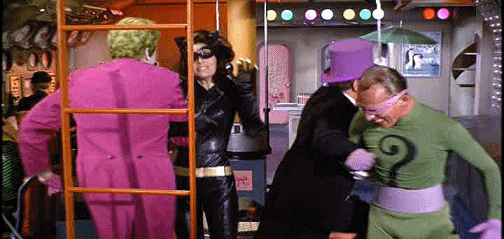
2.Batman
This one feels like a classic 30's/early 40's Batman comic ,right down to a brutal Batman not afraid to kill .It's the style and Jack Nicholson clearly having a ball playing the Joker that make this film
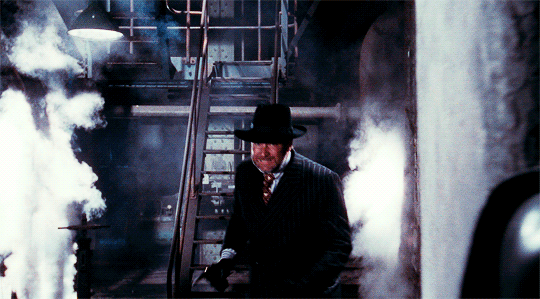
3.Batman Returns
So this movie is ....A lot and kind of a mess and it is not for everyone. It is very much Tim Burton unchained and it has very little to do with the comics .....That said I love this movie . I adore the fact it feels like a gothic monster movie as opposed to an action film .Gorgeous imagery,a fantastic perormance by Michelle Pfiffer ,Beautiful score , Christopher Walken is one of the villains and while the writing for the Penguin is confused ,Danny Devito gives a powerhouse performance ,being legit menacing and revolting
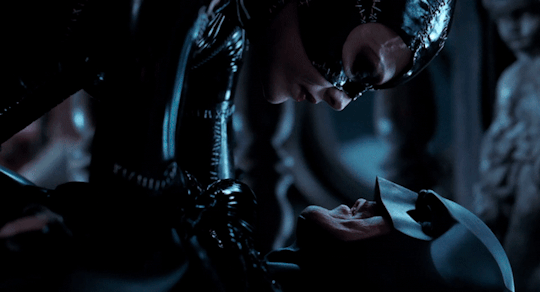
4. Batman Mask of the Phantasm
I feel as a movie this might be the best one ,structurally speaking . It's a solid mystery that explores Batman as a character , animation is gorgeous and allthe voice acting is subperb .It is not my favoritebecause there areelements from other Batman movies I like more

5.Batman Beyond Return of the Joker
Probably my favorite performance of Mark Hamill as the Joker .Thisw movie is awesome ,especially after watching Batman Beyond
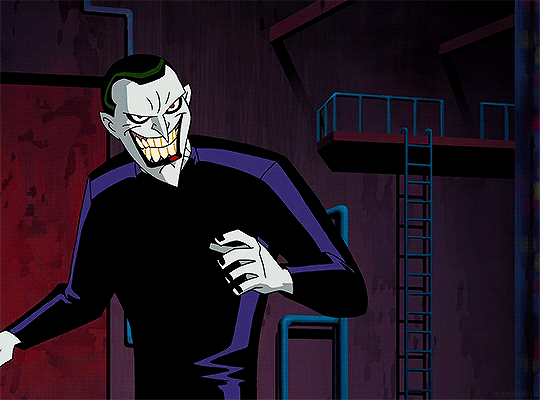
6.Batman vs Two Face
Adam Wests final Batman performance ,has a great villainous performance by William Shatner as Two Face (Proof that Shatner can give a truly brillaint performance ,cause he is legit menacing here)the plot is so wonderfully silverage comic booky ,and hey its a Batman movie where Joker ISNT the main villain which is rare ,this is a Two Face movie all the way and I am all for it
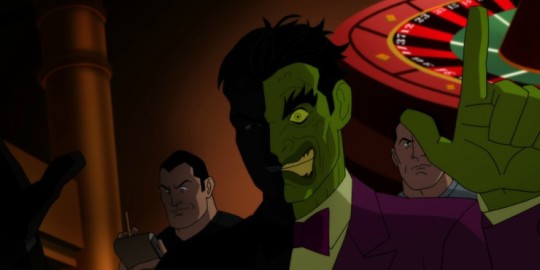
7.The Dark Knight
....Yeah I gotta explain why this is low for me .I got several hangups with Christopher Nolan and Christain Bale (Who I think is a terrible Batman ),I have problemswith the third act and this is in my mind a great crime movie that Batman happens to be in .That said it is still a great movie ,great supporting cast including Gary Oldman ,Michael Caine and Morgan Freeman ,and holy crap Heath Ledger makes for a phenominal reinterpertation of the Joker
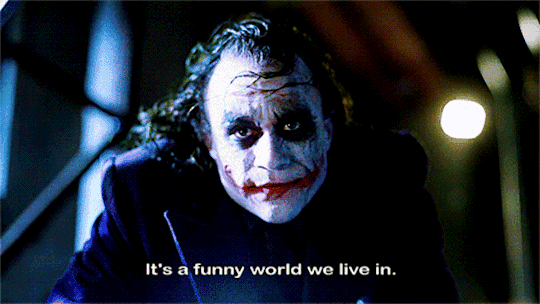
8.Batman Under the Red Hood
Great voice cast ,excellent dialogue and an emotional story .This movie is awesome
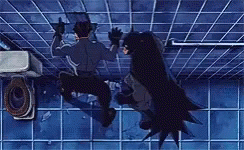
Batman Return of the Caped Crusaders
A tribute to the classic 60's show ,with Adam West ,Julie Newmar and Burt Ward reprising their roles and Batman turns evil giving Adam West a chance to shine as a villain.This is a ton of fun
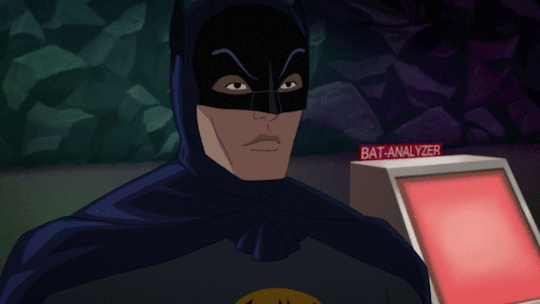
The Dark Knight Returns parts 1 and 2
Frank Miller is a lunatic and the comic this film is based on started some ungood trends in comics (And popularized Batman vs Superman which I HATE ).....That said it is still a good story ,and the film is beautifully animated (Which is interesting cause I HATE the artwork of the comic) ,wonderfully cast (Especially Peter "Robocop" Weller as Batman and Michael Emerson as the Joker ) ,action is spetacur.I dont think it is the ultimate Batman story ,and its a bit ofa problematic fave ,but I still think its an awesome movie
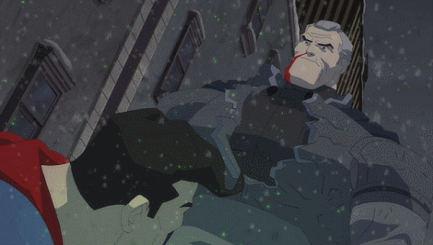
@metropolitan-mutant-of-ark @ariel-seagull-wings
15 notes
·
View notes
Text
Inspiring words to motivate you through your day

Take it from these famous people and their inspirational words to lift your mood, curated by the Upspirity review team.
"People ask, 'What's the best role you've ever played?' The next one." - Kevin Kline
"The two most important days in your life are the day you are born and the day you find out why." -- Mark Twain
"I find that the harder I work, the more luck I seem to have." -- Thomas Jefferson
"It often requires more courage to dare to do right than to fear to do wrong." - Abraham Lincoln
"Success is the sum of small efforts, repeated day-in and day-out."- Robert Collier
"As you grow older, you will discover that you have two hands, one for helping yourself, the other for helping others." -- Audrey Hepburn
"If you want to achieve excellence, you can get there today. As of this second, quit doing less-than-excellent work." -- Thomas J. Watson
"If your actions inspire others to dream more, learn more, do more, and become more, you are a leader." -- John Quincy Adams

"All progress takes place outside the comfort zone." -- Michael John Bobak
"The more you praise and celebrate your life, the more there is in life to celebrate." -- Oprah Winfrey
"You may only succeed if you desire succeeding; you may only fail if you do not mind failing." -- Philippos
"A dream doesn't become reality through magic; it takes sweat, determination, and hard work."-Colin Powell
"Only put off until tomorrow what you are willing to die having left undone." -Pablo Picasso
"The biggest risk is not taking any risk... In a world that's changing really quickly, the only strategy that is guaranteed to fail is not taking risks." -- Mark Zuckerberg
"We become what we think about most of the time, and that's the strangest secret." -- Earl Nightingale
"Do one thing every day that scares you." -- Eleanor Roosevelt
"The only place where success comes before work is in the dictionary."- Vidal Sassoon

"Don't be afraid to give up the good to go for the great." -- John D. Rockefeller
"Your work is going to fill a large part of your life, and the only way to be truly satisfied is to do what you believe is great work. And the only way to do great work is to love what you do. If you haven't found it yet, keep looking. Don't settle. As with all matters of the heart, you'll know when you find it."--Steve Jobs
"Don't worry about failure; you only have to be right once." -- Drew Houston
"Though no one can go back and make a brand-new start, anyone can start from now and make a brand-new ending." -- Carl Bard
"Nothing great was ever achieved without enthusiasm." -- Ralph Waldo Emerson
"Twenty years from now you will be more disappointed by the things that you didn't do than by the ones you did do. So throw off the bowlines. Sail away from the safe harbor. Catch the trade winds in your sails. Explore. Dream. Discover." - Mark Twain
"Keep your face to the sunshine and you can never see the shadow."- Helen Keller
"The first step toward success is taken when you refuse to be a captive of the environment in which you first find yourself." -- Mark Caine
"One of the greatest diseases is to be nobody to anybody." -- Mother Teresa
For plenty more inspiration in words including eBooks and novels, plus podcasts, check out Upspirity today.
1 note
·
View note
Text
Why Evil is the Only TV Procedural Worth Watching
https://ift.tt/eA8V8J
This Evil article contains spoilers. You can read a spoiler-free review of the show here.
Who knows what evils lie at the heart of CBS’s Evil? Shadows know. We consulted a book of shadows (not the one Leland Townsend (Michael Emerson) skims, too many spoilers there) to cut into the left ventricle of the darkness feeding the network’s supernatural series, now in production for season 2. The blood of the police procedural pumps through the veins of the paranormal investigation show, but Evil transcends the statutes of those limitations. Occasionally by papal decree. The series is intelligent, filled with symbolism, and its main character, who is training to be a priest, drops acid on a semi-regular basis. And he’s not microdosing. Look at those baggies.
Evil doesn’t debunk demonic possession, which is the main thrust of the team’s investigations. It never treats it as campy. The series believes demons are real, even giving the audience a breakdown of the six different forms possession take. But it deliciously stops short of giving full commitment. The show also explores how to parse out personal responsibility when there’s a supernatural being to blame. In episode 7, “Vatican 3,” we learn “the court does not acknowledge demonic possession” in determining guilt or innocence. The series further muddies the waters when the crew has to take a hard look at a murder committed by someone who wasn’t possessed, such as when the parents of what they believed is a demonically possessed child kill him. The series further turns the screw because the kid they killed to save their other children was born evil. It was literally in his genes.
Evil shares DNA with The X-Files, and David Acosta, played with charisma and empathy by Mike Colter (Luke Cage), is the new show’s Fox “Spooky” Mulder. He is looking for answers beyond the veil, which has the same letters as evil, and he is putting the pieces together like a hidden map of old Manhattan. There’s a truth out there and he’s willing to do whatever it takes to understand it. He’s not in it to solve any crimes against venal sins. He is looking for deeper meaning, and this alone puts the series above most procedurals. David’s got a bit of the scientist Dodge from original The Planet of the Apes film in his cinematic character. One of the first astronauts to delve so deep into the outer reaches of space, “He’d walk naked into a live volcano if he thought he could learn something no other man knew.” David is the same. He was a foreign correspondent in war-ravaged Afghanistan who got to know the soldiers whose stories he reported. Truth and knowledge are the most noble of callings, and ultimately come before his religious calling.
While the basic premise of a spiritual believer teamed with a dissenting psychologist is procedural trope, Evil is out to debunk the law of its diminishing returns. First, the show teams David with not just one skeptical voice, but two. Katja Herbers’ Dr. Kristen Bouchard plays the same role Agent Dana Scully played to Mulder, and with a similar arsenal. She comes from a different perspective, though. Bouchard does indeed believe in miracles, but thinks they all have scientific explanations. She is confident the only reason something might defy natural principles is because science hasn’t been applied properly yet. Scully, who wore a cross and took her faith seriously, accepted miracles on faith. David and Kristen rarely come to the same conclusion.
Ben Shakir, played by Aasif Mandvi, brings common knowledge, and shades his skepticism with cynicism. The former Daily Show correspondent takes on the weight of all three Lone Gunmen but with more constructive skills. Before joining the paranormal team, he was a carpenter, just like Jesus. Ben knows how things work, and when everyday mechanisms like sinks or faulty wiring are the root cause of supernatural phenomena, he can turn the screws, and spot the mold. Ben, “the Magnificent,” as Kristen’s children call him, is also tech savvy, and quite capable of hacking hackers.
Evil also throws things at Ben which he can’t easily spackle over with even the best of tests. Try as he may, and he tries, he can’t explain the light of an angel in the frame of a surveillance video. There is no evidence of doctoring, even at the most expert levels. “The world is weird,” David passes off as dating advice when Ben asks about potential girlfriend Vanessa (Nicole Shalhoub), who wants to know she if she should detach from her dead sister before committing to a new relationship. Vanessa thinks she is “tethered” to her phantom sister by the right arm.
Supernatural science is bizarre, creators Robert and Michelle King (The Good Wife, Braindead) believe. They push the show to diagnose causes the external evidence of exorcisms and stigmata, the bleeding wounds which correspond to the wounds on Christ’s hands when he was nailed to the cross. Because stigmatics display their wounds as they are portrayed artistically, rather than how the Romans historically would have done the crucifixion, it proves it comes from a psychological source. Internal belief causes the phenomena, not external spiritual forces. Evil explains that, allowing ample room for skepticism, belief, and even poetic reasons for spiritual incursions. David quotes Shakespeare to enunciate his faith. The concept of free will doesn’t come up in most procedurals. Neither does the way sociopolitical issues are turned into supernatural questions and tied to the origins of evil.
Evil is almost a character in Evil, and has relatable entry points. Real demons first get to Kristen’s four young daughters through an augmented reality videogame. A little girl who never takes off her Halloween mask almost gets the sisters to bury one alive. We don’t know how much of the characters’ perceptions is the result of a demon character’s influence on them. Each character is slowly being tempted by the dark side.
Kristen joined the team as a rational thinker but has had to accommodate uncomfortable ideas and adjust her comfort zone accordingly. In her usual line of work, she’s analyzed the criminally insane, but the show has pushed her into close contact with people who are evil in the Biblical sense. She is being pushed incrementally by forces in and out of her control. Her own mother Sheryl (Christine Lahti) sides with a manipulative competitor, Leland, over her daughter, and he’s made direct threats. The first season can be seen as Kristen’s slow corruption. The second season may see Kirsten apply her skills to her own situation, which will delve further into the dichotomy between the spiritual and pragmatic.
This is because Kristen may have already fallen. The final episode includes a telltale blood stain, which she wills Ben to unsee. On any procedural this is considered a clue, but here on Evil, the evidence actually points further than a mere homicide. It is the first sign that a main character has gone to the dark side. It is confirmed when the touch of a crucifix blisters her hand. There’s no such thing as an original sin and Kristen has been flirting with temptation long before this.
Kristen is a married nonpracticing Catholic who lost her faith. She’s sexually attracted to David, a man on his way to becoming a priest. When this subject was broached on the classic 1970s cop comedy Barney Miller, a prostitute who was supposed to be a young priest’s last fling before he entered a monastery said “I break laws, not commandments.” It feels like Kristen reminds herself of this every time the two of them are on screen alone together. Their sexual chemistry is that palpable. Yes, this is very similar to the long-gesticulating romance between Mulder and Scully, but he was no priest and she wasn’t married. Not only is Kristen married, but she’s got half a brood of daughters. Annoying things, really, but at least one of them has an excuse. Another reason Evil is the only procedural worth watching is because everyone on it just might be cursed. That’s not found in the manuals.
Evil towers over contemporary procedurals in how it’s going dark. Most procedurals chase a morally compromised arc, but Evil treats it like an encroaching corruption. Kristen, who is sworn to uphold the law, may have gone more than rogue vigilante. Besides the crucifix-burning season closing, David has visions of a goat demon waiting for Kristen with a scythe. She’d been tormented by her own personal demon throughout the season but when the George, the demon-like creature who visits Kristen during sleep paralysis, falls on the knife, it changes nothing. He is just one of many demons. One of them set up practice and is taking office hours with Leland.
The Demon Therapist is an all-male Goat of Mendes, or Baphomet. The show gets into how different biblical angels look from how they’re perceived artistically and by the contemporary faithful, but won’t present a faithful representation of Baphomet. It’s as patriarchal as Chilling Adventures of Sabrina. Evil keeps it vague whether the goat demon is real or in Leland’s head. The Demon therapist appears in Kristen’s dreams as well. Lexis (Maddy Crocco) disabled the house alarm for the visiting devil therapist when he invites her to “the next level,” making it seem she is at least susceptible to underworldly influence. The kids are irritating, but they are a bargaining chip and their father, Adam, put them up for grabs when they chanted together offering an exchange of souls. Kristen was co-opted into evil through protective motherly instinct. She doesn’t see the mark of the devil as a badge of honor. When Kristen puts the cross in her palm, she doesn’t look like she expected it as much as feared it.
While the network show will never have the freedoms afforded cable series, the acting is top notch all around. Series like HBO’s Perry Mason or even Showtime’s reimagined second incarnation of Penny Dreadful: City of Angels, provide a wider range of emotion and carnality. But Evil gives us muted, for the most part believable performances, very often underplayed. As are the special effects and use of technology as a narrative device. Too many procedurals treat high tech surveillance and other investigative tools like they are all-seeing eyes which can count nostril hairs. It has become normalized. Evil doesn’t waste intellectual space with unreasonable gadgets. The tools Ben or Leland use to their computerized ends are believable. At one point, Kristen asks Ben to record a cell phone conversation which is already halfway over. She is surprised he can’t with all his special skills.
The series incorporates real world horrors into mundane life. Even some of the most normal looking settings carry a sense of unease, to underscore the show’s thesis that the supernatural is natural but never quite normalized. Many of the scenes are shot vertically, drawing the viewers’ eyes upward and inferring something is always going on above. The series’ many wide-angle shots put a distance between characters even in close-ups.
The show isn’t afraid to wear its influences on its sleeves, and on several occasions has a lot of fun with it. For Dr. Kurt Boggs’ (Kurt Fuller) arrival at an exorcism, they recreated Father Merrin’s introductory scene in the horror classic The Exorcist, shot for shot, even getting an exact replica of the light post and the same make car, though different year, from the film. They gave nods to Rosemary’s Baby, Misery, Cabin in the Woods, and Children of the Corn. The climbing ax which Kirsten grabs on her way out to do damage on the serial killer Orson looks like it has teeth. As did the walking stick Lon Chaney’s Larry Talbot carried in The Wolfman. The demon George looks like Freddy Krueger’s good-looking cousin. The tonality of the show is reminiscent of Charles Laughton’s immeasurably influential Night of the Hunter.
The main reason Evil shines above most procedurals is because it is scary, and those scares have been building slowly and deliberately. Commonplace settings feel off, and the world around is filled with conspiracies and coverup. The Vatican asks the team to determine whether a woman who knows the hidden history of the church is a false prophet. The fertility clinic Kristen and her husband Andy used when conceiving Lexis corrupts fetuses with satanic insemination. A witty but innocuous internet meme, Puddy’s Christmas song, is a hummably foreboding earworm. Anything can go evil on Evil.
cnx.cmd.push(function() { cnx({ playerId: "106e33c0-3911-473c-b599-b1426db57530", }).render("0270c398a82f44f49c23c16122516796"); });
Evil season 2 is currently in production. Read more about that here.
The post Why Evil is the Only TV Procedural Worth Watching appeared first on Den of Geek.
from Den of Geek https://ift.tt/3fRxopa
3 notes
·
View notes
Link
Chances are that by the time you get to the end of this article, there will be news of another information operation targeting Donald Trump. There’s one a day now—each trumpeting a new mortal threat to the republic or some dastardly revelation based on sources that are usually anonymous. Whatever it is, it will serve the same purpose as the hundreds of similar sallies launched over the last four years—namely, to preserve and protect the position and privileges of America’s ruling elite.
Trump stories are rarely about Trump. The same stories, or versions of them, would have targeted anyone who threatened to sever the American political, corporate, and cultural elite’s economic lifeline to the Chinese Communist Party. It is largely because Trump sought to decouple the United States from the CCP that America’s China Class, which owns the platforms on which Americans communicate, has waged a relentless campaign of information warfare against him through its social media and prestige media brands.
Consider the last two anti-Trump info ops: He gratuitously denigrated the historical suffering of African Americans, and he expressed contempt for America’s war dead. These are the sort of false allegations that political operatives are tasked to manufacture and disseminate during election season. Their purpose is to reinforce a negative impression of the opposing party among whatever cohort is being addressed, and make the target spend resources—time and money and sometimes blood—on defense. That’s politics 101, since the time of the Romans.
What’s new is that this is now journalism too. Since the internet defunded the press at the end of the 20th century and social media became the dominant player in America’s information space, journalism has abandoned the traditional standards and practices that once defined reporting. For instance, the smear holding that Trump is contemptuous of the military was supposedly based on four anonymous sources recalling exchanges from three years ago, which have been contradicted by dozens of named sources, some of whom were physically present when the comments were supposedly made—and some of whom have been public Trump opponents. In traditional journalistic terms, that’s not a news story—that’s a failed attack line.
The press that existed in America from the end of the 19th century until the turn of this one was designed to inform, influence, and sometimes inspire or inflame fellow citizens. But for people under 30, the only kind of “journalism” they’ve ever known is more like Pravda in the old Soviet Union or the kinds of party media found throughout the Third World. Journalism is an insider’s game, in which the stories are often outlandish, but rarely true; their actual news value is the hints they may offer about shadowy maneuverings that affect people’s lives but take place out of public view, like the rise or fall of a particular colonel who is pictured standing closer to or farther away from El Caudillo or Al Rais. Stories aren’t about the realities they purport to depict; the real stories are always the stories about the story.
American journalists, who now draw their paychecks directly and indirectly from the country’s largest economic interest—technopolies like Amazon, Apple, Google, and Facebook—are now turning the public sphere into a phantasmagoria of conspiracy theories and hysteria to cement the politburo’s position and privilege.
Accordingly, the debate in Washington, D.C., over which great power is feeding more disinformation into the 2020 election cycle isn’t real—it’s not Russia, as collusion impresario and Democratic Rep. Adam Schiff claims, nor, as Attorney General William Barr says, is it China, though he’s closer to the truth. The source of the purposeful disinformation pouring into the American public sphere like untreated sewage is the American elite, led by its tech oligarchs, who own the platforms on which information campaigns are staged and laundered to protect their core interests—foremost among them being cheap Chinese labor and access to Chinese markets.
Let’s return to the two smears from above: Trump scoffs at Black suffering and Trump says military service is for suckers and losers. The former comes from the Washington Post’s famous Watergate reporter Bob Woodward’s new anti-Trump book, and the latter was posted on the website of the Atlantic. Strip away the decorative paraphernalia that dresses them up to look like news articles, and both of these pieces of “journalism” are actually just tweets. The stories they’re attached to are hollow vessels festooned with brand names to ensure their reach and reception as they circulate through the information ecosystem of social media and cable news platforms.
Of course, when Jeff Bezos bought the Post and Woodward brands in 2013, he had no more idea than Vladimir Putin did that the host of “Celebrity Apprentice” would one day sit in the Oval Office. Bezos acquired them for the same reason the widow of Apple founder Steve Jobs picked up the Atlantic—to defend the industry, tech, and political arrangements with China’s manufacturing base that drive their profits from “political interference.”
A little historical background may help explain how America’s information supply has become so badly poisoned. The Atlantic magazine was founded in the mid-19th century in Boston, where it published some of the founding figures of the American nationalist movement in literature like Ralph Waldo Emerson and Oliver Wendell Holmes. In 2005, its owner moved the Atlantic to Washington, D.C., where it accomplished the rare feat of turning a profit in the contemporary publishing industry—not by selling magazines or ad space, which had been turned into cheap commodities by the rise of the internet, but by billing Beltway lobbyists and tech and defense executives for the opportunity to influence well-known thought leaders at conferences, luncheons, and parties hosted under the Atlantic label in Washington, Aspen, and elsewhere. Laurene Powell Jobs bought a majority share in 2017.
The big message her property sent with its anti-Trump blog post was that Trump is contemptuous of a significant part of his base. What many Trump supporters saw was something else, though: Another proof of the elite’s determination to replay the 2016 election cycle.
Four years ago, few normal Americans imagined that their political class was capable of manufacturing a conspiracy theory out of whole cloth and laundering it through the nation’s spy agencies and the press in the hope of overturning the result of a democratic election. But after four years of Russiagate, and subsequent operations (the Mueller investigation, Ukrainegate, the razing and looting of American cities disguised as “peaceful protests,” etc.), no one is unaware that such coordinated campaigns are possible. In fact, they have become normal.
This time around, the role played by spies in the 2016 election is being filled by former senior Pentagon officials, including James Mattis, Trump’s one-time defense secretary. In June, Mattis wrote an article—in the Atlantic—likening Trump to the Nazis for wanting to dispatch the military to protect the lives, homes, and businesses of American voters.
Gen. Mattis is no stranger to Silicon Valley or its scandals. As head of U.S. Central Command, the four-star Marine general pushed for the products of one Silicon Valley startup to be used on wounded Americans in uniform, and after retiring he won a lucrative seat on the board of the same company, Theranos, which turned out to be the biggest fraud in the history of biotech.
Then there’s Stanley McChrystal, a retired four-star Army general who is reportedly advising a Democratic PAC called “Defeat Disinfo” on how to use Pentagon software to wage information warfare operations against the Trump campaign. McChrystal resigned his post in 2010 after a magazine reporter documented how he and his aides savagely mocked then-Vice President Biden, the man his information warfare campaign is now supposed to install in the White House.
McChrystal’s beef with Trump is something more than just greed or ego. He has been openly critical of Trump for wanting to get American forces out of the Middle East. He ripped the president when Mattis left his Pentagon post because the Marine wanted to keep more troops in Syria. McChrystal was head of operations in Afghanistan and thinks Trump should stay there, too. The problem is, he’s not sure why. As he told Secretary of State Mike Pompeo, he thinks the best option is to stay in Afghanistan and “muddle along.” And now he’s getting paid by Silicon Valley, too.
Trump is right that top military brass has it out for him and probably for the reasons he states—because pointless engagements like Afghanistan advance them personally and land them lucrative seats on the boards of defense and technology companies. But the personal ambitions of Pentagon officials are finally no more relevant here than those of the FBI, DOJ, CIA, and State Department bureaucrats who played a role in the first installment of the Russiagate franchise. They’re walk-on parts, as are the various media operatives and outlets like Bob Woodward and the Atlantic, in a much larger corruption of our politics.
The central pillar of the corrupt new order is the American elite’s relationship with China. To be clear, the issue is not that former media organizations like the Post and the Atlantic are pro-China. Both publish articles about the Chinese military, intelligence services, propaganda campaigns, human rights abuses, etc.—at the same time as the Post runs a regular insert produced by the Chinese Communist Party called China Daily. The point is that terms like pro- or anti-Red China are from a different era, when publications like Henry Luce’s Time Magazine were partisan and had points of view.
What matters now are platforms. And for the purposes of information warfare, what’s important is not the content but rather the availability and reach of the platforms, whose job is to protect the American ruling elite’s wealth and preferences by spreading whatever propaganda the elite sees as beneficial. By threatening to split the United States from China, Trump earned the enmity of America’s China Class, which is working hard to remove him from office, and replace him with someone more pliant.
Trump was not the first presidential candidate who noticed there was a tremendous political opportunity in picking up the support of a middle class undone by the ruling class’s foreign trade practices. Democratic Congressman Richard Gephardt made the same case during the 1988 election cycle. Gephardt lost. He lost again in 1992.
By the time the Clinton White House granted China most favored nation trade status in 2000, all of Washington knew that America was running a vast trade deficit that was destined to increase with accession to the World Trade Organization. The price for lifting tens of millions of rural Chinese peasants out of poverty through favorable trade arrangements would be tens of millions of American lives ruined, even as large American companies like Apple and Nike and bankers like JPMorgan and Goldman Sachs got richer. The elite reasoned that they had no choice: The rise of China was inevitable. Why fight it?
American political and corporate elites didn’t choose decline. They chose to get rich. By shipping America’s manufacturing base off to China, they seized a business opportunity the likes of which had never been seen before—an enormous captive labor force controlled by an authoritarian regime that guaranteed the steady production of goods at a fraction of what it would cost at home. American cultural elites (Hollywood, sports, art, etc.) who exploited the increasingly large Chinese market for their products provided cover for the China Class cohort with messaging that dovetailed with CCP propaganda.
Who were Americans to judge a great and ancient civilization like China’s for jailing dissidents and enslaving the Uighur minority? Doesn’t America have its own history of slavery and political prisoners? It’s racist to protect American jobs. Those jobs aren’t coming back and there is nothing to be done about it, as Barack Obama famously said—unless you have a magic wand …
Calling out the American elite for betraying American interests in the service of their own personal and corporate bottom lines helped Donald Trump win the presidency. But it’s not clear that he truly understood how deeply entwined Beijing’s interests were with America’s China Class—and that trying to decouple the two would lead to an attempt at a permanent coup by the new techno-elite, targeting not just him and his supporters but the foundations of the republic, from our military to the media, and from our justice system to the institution of the presidency itself.
The American elite’s financial relationship with China is the key to understanding what’s been happening in America the past four years. Any president, Democrat or Republican, who took on China would have been targeted by the China Class. Because it was Trump flying the Republican banner who sided with America’s working men and women, the Democrats resorted to alliances with powers that now threaten the stability and security of the country.
#china#trump#media#journalism#conspiracy stuff#conspiracy#bourgeoisie#class warfare#class war#information warfare#psychological warfare
2 notes
·
View notes
Text
AN OVERALL AMERICAN CONSTRUCT, PART I
This writer, in his recently published book, introduces an instructional mode for the teaching of civics education.[1] He calls that mode historical dialog-to-action (HD-to-A). Simply described, it calls on students to discuss, argue, and debate (in ascending order) civic issues through analyses of their historical developments.
The main rationale for such an approach is that through historical developmental stories, students can be appraise holistic accounts about how current challenges have come to be. The essence of the challenges chosen is their endangerment in fulfilling federalist values, for example, the way the opioid crisis has endangered the equity of millions of Americans. The aim is not to determine what should have happened, but to what should happen in the future in dealing with the identified challenges.
While that is the aim, a lot must be filled in to guide such an effort – both in terms of content and, to some degree, instructional methods. This posting sets out to initiate addressing of the former – the content. And in that, such an effort, to be logically in line with what this blog has argued, that overview of the nation’s history would ideally reinforce a federalist bias that this blog has claimed characterized much of that history.
To restate that argument, the US, since its colonial past, held as a dominant view concerning government and politics, a federalist version of what those entities should be. That dominance lasted till the years after World War II and then it was overcome by a shift to the natural rights view or construct.
Both views are aspirational in nature and should not be considered descriptive of what was or is. The version of federalism that earlier Americans held was what this writer calls parochial/traditional federalism and it called for the federation of mostly the European-based population of the American nation.
Given these claims, a look at the historical overview of the nation not only gives one stories of how this development took place but provides evidence as to the veracity of this overall claim regarding the role of federalism. But before delving into these concerns, a few definitions are needed.
By federalism this blog has not emphasized, nor totally ignored, the structural elements of that construct; that being of the two levels of governance, the central government and the state governments. Instead, this blog has been mostly concerned with what Daniel Elazar calls the processes of federalism.[2]
Those processes basically highlight the construct’s call for a citizenry to adopt a partnering mode of civic intercourse. Or more in line with the term, federalism, citizens establish and maintain themselves as being federated with each other. The term federalism is derived from the Latin term foedus – meaning to be leagued through an agreement (a covenant) that, in turn, is held to be sacred.[3]
A further distinction is between a covenant and a compact. According to Donald Lutz, the former calls on God to witness such an agreement, the latter does not.[4] The US Constitution is a compact. The common citizen becomes aware of such an agreement when he/she considers the solemnity of the marriage vow. Usually in a church, that agreement is a covenant; before a state official, it’s usually a compact. Both are held equally scared.
This overview reappears in this blog from time to time. The historical development stated above also reappears often. But as this blog sets out to test its overall historical view, this context is judged essential in this initial posting. And before moving on, one more repetitive note should be added.
By saying federalism served as the central view of governance and politics it is not to say all agreed with it or that other ideas, theories, models did not exist under its umbrella. But, for this latter grouping, there should be a logical connection between what more specifically served to guide Americans, e.g., Puritanism, and what constitutes the more general tenets of federalism.
And those tenets can be summarized by a few words: cooperation, collaboration, commonality, and community. More granular terms are equality (a regulated equality), liberty (a federal liberty), and civic virtue (a common value held by the founding fathers[5] and a quality that introduces a moral aspect). This list can be expanded, but if one considers what the phrase “to be federated” means, the reader can think of his/her own terms to describe this view of citizenry.
So, given this, what overview serves to provide a substantive general look at what constitutes the nation’s history. For that purpose, this blog relies on the overview authored by Allen C. Guelzo.[6] In introducing his treatment, Guelzo poses the question: do Americans have a collective mind? And to address that question: what is a national mind? It is a shared view – a construct – that to some degree defines what a people see social reality to be. And Americans seem to approach that question a bit reluctantly.
They are considered to be doers, not thinkers. Of course, such a dichotomy cannot be totally true. A people do need to think, and they do need to do; so, the question is: how far a people carry on their affairs favoring one or the other? The eventual dominance of Pragmatism in the late 1800s seems to indicate a “doer” bias, but Pragmatism itself is a well thought out philosophical position. But this is getting ahead of the story.
In the writings of Elazar, he tells of how the original settlers, those of Massachusetts Bay being prominent, brought with them this Puritanical, covenantal approach with them. The Mayflower Compact (a covenant) initiated this approach. The signees of the document entered into a federalist arrangement.
But to return to Guelzo’s account, he identifies this Puritanical influence as the starting point for how Americans began defining themselves. The Puritanical strain shortly was mixed in with those influences emanating from the Enlightenment – and as it will be fully described at a later date, a Scottish Enlightenment.[7] Guelzo uses the analogy of two cooks – each one of these two traditions – cooking up America’s intellectual history.
But was there another “cook”? Guelzo points out that one of the aspects of the American experience discouraging an intellectual bent was the practical realities that Americans faced in settling a continent. Typical days that these early generations faced were filled with how one was going to make it till sunset. The bulk of the population had its days filled with a slew of practical hurdles the frontier provided.
But this, in and of itself, according to this blogger, added to the need for a federated approach. Alexi de Tocqueville describes the common experiences of Americans in the 1830s.[8] The outstanding characteristics highlighted in that description were how intense were the levels of cooperation, collaboration, and community – these characteristics were not considered as so many duties, but necessary and even sources of entertainment. And in this, one can see how Ralph Waldo Emerson was keen on pointing out Americans’ practical thinking.
Even de Tocqueville expressed concern over Americans’ lack of philosophic concern. He wrote, “Each therefore, withdraws into himself and claims to judge the world from there … [he, therefore has] the shallowest of ideas, and tend[s] to be tightly chained to the general will of the greatest number.”[9]
The plan for the next posting is to pick up on this overview. To this point, one can readily see that what is described above does not contradict federalist thought among Americans but by reviewing these finer elements of the nation’s past, one can further describe federalist influences and explain why it held on so strongly until the late 1940s.
[1] Robert Gutierrez, Toward a Federated Nation: Implementing National Civics Standards (Tallahassee, FL: Gravitas/Civics Books, 2020). Available through Amazon.
[2] Daniel J. Elazar, Exploring Federalism (Tuscaloosa, AL: The University of Alabama Press, 1987).
[3] Center for the Study of Federalism (n.d.), https://federalism.org/about/what-is-federalism/ .
[4] Donald Lutz, The Origins of American Constitutionalism, (Baton Rouge, LA: Louisiana State University Press, 1988).
[5] Thomas E. Ricks, First Principles: What America’s Founders Learned from the Greeks and Romans and How That Shaped Our Country (New York, NY: HarperCollins Publishers, 2020). He analyzed George Washington, John Adams, Thomas Jefferson, and James Madison.
[6] Allen C. Guelzo, The American Mind, Part I, II, III – transcript books – (Chantilly, VA: The Teaching Company/The Great Courses, 2005).
[7] Ricks, First Principles.
[8] Alexi de Tocqueville, “Political Structure of Democracy,” in Alexis de Tocqueville: On Democracy, Revolution, and Society, ed. John Stone and Stephen Mennell (Chicago, IL: Chicago University Press, 1980/1835).
[9] Guelzo, The American Mind, Part I , 11.
#federalism#Daniel J. Elazar#Donald S. Lutz#Thomas E. Ricks#Alexis de Tocqueville#Allen C. Guelzo#civics education#social studies
1 note
·
View note
Text
Hypothetical titles for season seventeen of 88
Golem. Season premiere. Part one. Drummond is bequeathed a Golem in his biological grandparents will. He doesn’t want it. So he hatches a plan to offload it.
Yosemite. Season premiere. Part two. Lysander’s continued effort to befriend Drummond puts his life in danger when he offers to help deliver the golem to an old contact of Drummond’s. First appearance of Tom Holland as Roxas “Yosemite” Winchester.
Dull. The team works a cold case from ten years ago when a victim turns up having been killed in the exact same way. Guest starring Nolan Gould as Dahl Kramer.
The long and short of it. Devon has to intervene when Jonah accidentally resurrects William Shakespeare after Andy teaches him how to safely use a ouija board. Guest starring Mat Baynton as William Shakespeare.
The man makers. Part one. The team investigates a cult in a Long Island suburb comprised of mothers who endorse a long disproven Roman belief about masculinity.
Rampage. Part two. A college senior freely admits to killing all the women in his family six years after they’d subjected him to the machinations of the suburban cult.
New Rochelle. Findlay and Sidney go undercover to protect a sitcom star from an assassination attempt. Guest starring John Mulaney as Eugene Mayberry III and Elizabeth Olsen as Charlotte Linter.
What do you need? Findlay takes it upon herself to help an engineering prodigy that took control of his family’s business building after repeated mistreatment from the staff. Guest starring Graham Phillips as Clyde O’Bannon.
Watch the queen conquer. Findlay heads to the Cabal Academy in Russia to deliver a speech on gender equality as a favour to one of Barnaby’s old dorm mates. Guest starring Dara Renee as Naomi Morris and Cobie Smulders as Diocese.
Alakazam. While Findlay’s in Russia, Drummond, Odessa, Coleman and Solaris get trapped in an old board game Gideon was combing for hexes.
Exhumed. Findlay finds herself at odd with Donovan’s ghost and and Celestine when she blocks a protest group who want to dig up Donovan’s body to enact alleged reparations.
Christmas at the White House. Midseason finale. Part one. The DuPont family invite the Five Families to the White House to celebrate Bethany’s final Christmas as president.
The Vice President. Midseason premiere. Part two. Bethany DuPont is offered a new role at the White House by the incoming president. First appearance of Adam Beach as Marcus Marley.
The presidential oath. The Five Families are invited to Marcus Marley’s inauguration as the first male president of the United States of America.
Bad to the bone. Findlay’s fiftieth birthday is coming up. So Sidney conspires with Tatum Mercer to get her a starring role in a music video that Emerson Davenport is making for charity. Guest starring Aubrey Plaza as Tatum Mercer and Chris Pratt as Emerson Davenport
Butterball. Findlay finally relents on her “no pets” rule and allows Jonah to buy a puppy. Especially when she finds out that Zoey’s terrified of corgi’s.
Those who get left behind. Birch bars Findlay from talking to the parent of a teenage boy who killed himself because of her downright atrocious bedside manner.
Brimstone and treacle. Findlay is called as a witness in a competency trial focused on her family’s old nanny. Guest starring Neve Mcintosh as Fiona Abernathy.
Complications. The team is tasked with protecting a senators pregnant daughter after word gets out that her mother had sold her daughter’s first born child to bag the election. Guest starring Alan Cumming as Rumplestiltskin
Extended family. The 400th episode. In this two hander, Lisette Christensen and Drummond have a long talk about jewellery, family and birthrights. NOTE: this episode is a synchronous episode, taking place at the same time as Complications
Suited and booted. Season finale. Part one. Drummond, Andy and Caine set off for the south of France. Features the return of Tom Holland as Roxas Winchester.
Stowaway. Season finale. Part two. Drummond is incensed when he discovers that Jonah’s snuck aboard the plane and refuses to go back home.
Watch the master at work. Season finale. Part three. Drummond’s team lands in the south of France and immediately runs afoul of the smugglers they intend to steal from. Guest starring Matthew Broderick as Ulysses Haven, Alan Ruck as Ulysses’s husband Wallace and Nathan Lane as their enforcer Torvald Macher.
Blood emeralds. Seasons finale. Part four. Drummond enacts a final, last ditch attempt to nab the emeralds right from under Macher and the Haven’s noses.
#mine#copyright me#modern fantasy#tom holland#nolan gould#mat baynton#john mulaney#elizabeth olsen#graham phillips#cobie smulders#dara renee#adam beach#aubrey plaza#chris pratt#neve mcintosh#alan cumming#matthew broderick#alan ruck#nathan lane
1 note
·
View note
Text
NATALIE SCHAFER
November 5, 1900

Natalie Schafer was born in 1900 in Red Bank, New Jersey, although some sources say New York City. She is best remembered as Lovey Howell, the millionaire’s wife, on “Gilligan’s Island.”
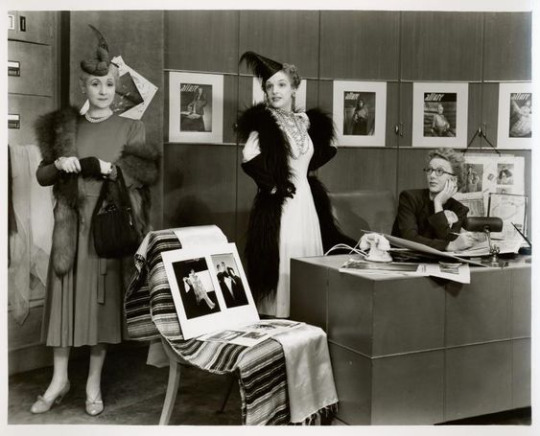
Schafer began her career as an actress on Broadway appearing in 17 plays between 1927 and 1959 including runs in Lady in the Dark (1941–42, above), The Doughgirls (1942–44), and Romanoff and Juliet (1957–58).
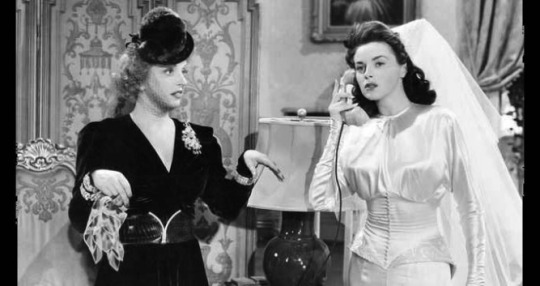
In 1941 she started doing films with The Body Disappears starring Jane Wyman and featuring “Lucy” players Edward Everett Horton and Dick Elliott.
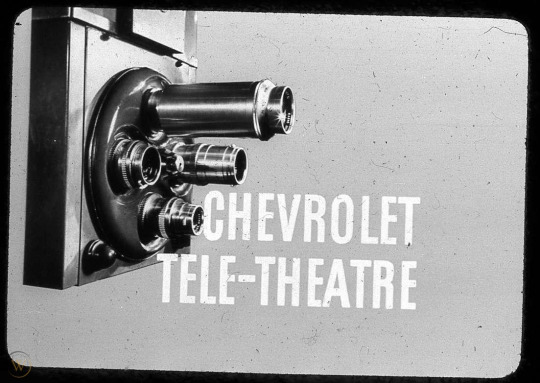
She re-teamed with Horton for her TV debut in 1948 with an episode of the anthology series “Chevrolet Tele-Theatre”.
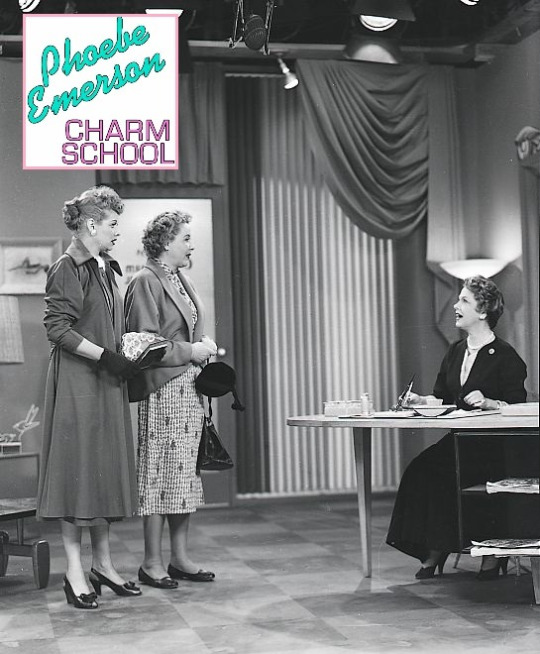
In 1954, Schafer made her only appearance on “I Love Lucy” in “The Charm School” (ILL S3;E15). Lucy and Ethel visit Phoebe Emerson Charm School for a free Beauty Analysis and CQ (Charm Quotient) check-up. Miss Emerson grades on four points: skin & make-up, hair, voice, and posture.

Lucy and Ethel are then put through an exercise and posture regimen. Sadly, much of the scene was cut in the final edit. Only still photos remain. The week before this episode first aired, Schafer made an appearance on CBS TV’s "Topper” as a character named (coincidentally) Mrs. Vance.

Two years later Schafer co-starred in Lucy and Desi’s film Forever, Darling (1956) as Millie Opdyke. The film also featured her ex-husband, Louis Calhern and another future sitcom star Nancy Kulp, who also played a maid on “I Love Lucy”. Kulp went on to create the role of bank secretary (like Lucille Ball herself) Jane Hathaway on “The Beverley Hillbillies” on CBS.

In April 1964, Schafer re-teamed with Kulp as guest-starred on “The Beverly Hillbillies” playing dress shop owner Madame Renee. The episode also featured Tropicana maître ‘d Maurice Marsac.

In 1960, she was back at Desilu Studios to film an episode of ABC’s “Guestward Ho!”, a series that was originally supposed to star Vivian Vance.
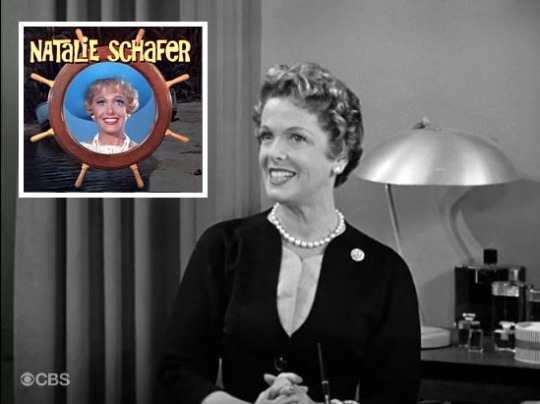
On September 26, 1964, Schafer first played the role she would forever be identified with, Mrs. Howell on “Gilligan’s Island” appearing in all 99 episodes of the original series (including the un-aired pilot), which completed its run on Boxing Day 1966. The character of Ginger, the movie star castaway, was described during casting as a combination of Lucille Ball and Marilyn Monroe. Series creator Sherwood Schwartz was a Lucy fan. His brother Elroy Schwartz actually wrote scripts for Lucille Ball.
Lucille Ball also employed many of the denizens of “Gilligan’s Island”: Alan Hale Jr., Janos Prohaska, Mel Blank, June Foray, Vitto Scotti, Hans Conried, John McGiver, Phil Silvers, Don Rickles, Stanley Adams, Roy Calhoun, Strother Martin, Herb Vigran, John Gabriel, and Sandra Gould.
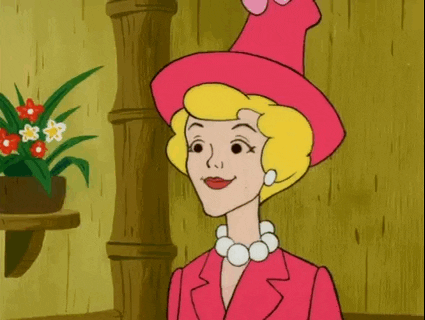
Schafer returned to the character for each of its future iterations:
“The New Adventures of Gilligan” (1974)
“Rescue from Gilligan's Island” (1978)
“The Castaways on Gilligan's Island” (1979)
“The Harlem Globetrotters on Gilligan's Island” (1981)
“Gilligan's Planet” (1982)

In 1972 she did a guest shot on “Mannix”. The series was originally produced by Desilu. In 1971, “Here’s Lucy” featured Mannix (Mike Connors).

Her final screen appearance was in the TV film I’m Dangerous Tonight, released just months before her death.
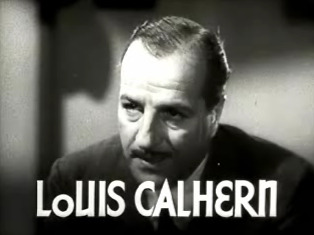
Schafer was married to actor Louis Calhern from 1933 to 1942; they had no children. Calhern had worked with Lucille Ball in The Affairs of Cellini (1934) and Forever, Darling (1956).

Although her contract included forbid close-ups, she insisted that her obituary disclose her real age. She said she wanted people to say "she was HOW old?!”
Natalie Schafer died in 2001. She was 90 years old.

#Natalie Schafer#Lucille Ball#I Love Lucy#Gilligan's Island#Vivian Vance#Charm School#Phoebe Emerson#I'm Dangerous Tonight#Mike Connors#Mannix#Guestward Ho!#Beverly Hillbillies#Nancy Kulp
4 notes
·
View notes
Text
Underrated Saw I Characters.
Zep Hindle - He was an awful guy, truly. Yet, Michael Emerson pulled playing Zep off so well, he was creepy, gross but an amazing side-villan who deserves much more attention. The iconic "Its the rules" line has become more of a meme within the fandom now but his creepy voice is amazing. Very Power hungry and it's made clear within the movie.
Diana/Alison Gordon - Both amazing, strong characters who were able to withstand and escape Zep, incredible actress' both of them and I don't see enough love for either of them. Makenzie Vega was amazing and pulled probably some of the best child acting ive seen in a long time, Monica Potter- played a strong mother who fought Zep and I stan all of that.
David (Detective) Tapp - Boy, I LOVE Tapps character development and this isn't looked into enough. How he goes from determined to find Jigsaw to needing to find Jigsaw. Obssessive, litterally crazy, insane after Sing dies. How his blind need to catch Jigsaw gets him killed. The character development for every character in this film fuels me, but seeing Detective Tapp fall into literal instanity after Sings death and getting progressively worse (how his room is covered in arcticles, papers, pictures; how he paid Adam to stalk Lawrence etc, how he was litterally discharged from the police force because he was so torn up over Sing but CONTINUED anyway) is just amazing. Heavily heavily underated character, Danny Glover pulled this role off so well. There isn't enough talk on Tapp.
Detective Sing - Not in it for long but Tapp and Sing as a crime fighting duo were amazing. Sing was far more level headed than Tapp but he stuck by his side regardless, trusting him when he found a lead etc. I feel like the duo worked well, Tapp was determined and Sing stayed level headed, they worked well together from what we saw and Sing isn't talked about enough. Sings death genuinely impacted and tore up Tapp to the point of instanity (Lawrence Gordon says the reason he was discharged was right after Sing died so thats when the fall to insanity started). Ken Leung in the short time he played the role did a good job and you can't tell me otherwise. The clear dynamics of Tapp and Sings character and seeing how they were different but ended up being great partners is 👌.
As much as I love Adam, Lawrence, Amanda & John (and how the actors were incredible in the movie), they already get quite a lot of appreciation from the fandom. I seriously believe these were the most underrated characters from the first movie that deserve more appreciation. This is more of a ramble than anything. I didn't include Mark or Paul or Kerry because they aren't really in it long enough. Kerry is more involved later on.
This was just rambling more about characters who I believe were underrated, I think all actors and actress' pulled off a great job and made the movie into something you can see passion behind.
Feel free to add more to this list, even if you want to make your own list for characters that arent restricted to Saw I! Id love to hear more or pointers why you believe a character is underrated or overrated.
#saw rambles#Feel free to add to this list!#saw#saw I#2004#saw franchise#leigh whannell#james wan#detective sing#detective tapp#david tapp#steven sing#adam faulkner stanheight#lawrence gordon#alison gordon#diana gordon#john kramer#jigsaw#zep hindle#hello zepp#michael emerson#makenzie vega#monica potter#Danny glover#Ken Leung#cary elwes#shawnee smith
39 notes
·
View notes
Text
The Right Choice - Part 4

Summary: You had hoped going to Korea to look after your estranged grandmother would allow you to connect in some way to your mother’s culture. However, being half-Korean and a single mother meant you would face the stigma of a narrow-minded society instead. Had you really made the right choice to come here?
Pairing: Mark Tuan x reader
Genre: single mother au / strangers to lovers au / self-growth / angst / romance
Warnings: open prejudice and stigma over solo parenting
A/N; Although the warnings seem rather negative, this story is one I hope a lot of you will enjoy! I’ve wanted to write this for over eight months now, and I’m glad I finally sat down to do so. It isn’t as dark as it sounds, and nor is it intentionally a dig at Korean culture as a whole.
The Right Choice will be posted daily at 10am NZST.
Parts: 1 | 2 | 3 | 4 | 5 | 6 | 7 | 8

When your grandmother returned to consciousness, she blinked slowly at finding you sitting at her side. You perked up, smiling at her and leaned in closer. “Oh thank goodness, you’re okay.”
Her eyes travelled to the hand you gripped onto and you let go, cringing a little. “Sorry, I just, I don’t do well in hospitals after Mum’s time in one. Was I holding on too tightly?”
She still didn’t speak, but her gaze relaxed, reaching for the hand that had let her go. You were stunned as she slipped her weathered palm into yours, giving your hand a gentle squeeze.
With tears in your eyes, you smiled, nodding at her softly. She was giving you a chance.
When you were certain she was resting well again, you stepped out into the hallway, looking over at the chair Mark was resting in. He had been adamant in taking care of Emerson for you whilst you dealt with your grandmother’s heart scare, and although he was someone new in your world, the instant connection you held with Mark made it easier to leave your daughter in his care.
You weren’t ready to come out to this sight, however.
You were used to seeing your Dad with Emerson. He was an active role model in her world as much as he had been in yours and so seeing your Dad with your baby girl had always made your heart swell with joy. But as an only child, it wasn’t as if you had an endless access to male figures in your life. A couple of friends back home had husbands who would spend a little time with her when playing with their kids but that was about it.
So seeing Mark napping in the chair whilst cradling Emerson so naturally to his chest was a little too much for your heart to handle.
Blinking rapidly away from your moment, you walked over to the spare chair at his side and slumped down into it, jostling him enough to wake him up. When he opened his eyes, Mark straightened up and looked around at his surroundings before staring back at you. “How is she?”
“She’s awake now, and stable.” You held out your arms. “Here, let me take her.”
“She’s alright here,” he offered which threw you off a little. Mark turned bashful. “I didn’t mean to nod off, her breathing was so even and well, next minute you’re waking me up.”
“The joys of babies,” you mentioned with a smile, allowing your hands to fall to your lap. Fidgeting with your fingers, you quietly looked at Mark from your peripheral. “Do you like babies?”
“I have three nieces, they’re the sweetest things. Whenever I see them, I’m pretty hands-on.”
“I see.”
“My whole family is pretty baby orientated. Well, family orientated. It’s important to be close to the ones we love most.”
You glanced at the hospital room in front of you and nodded. “I share the same mindset.”
“She’ll come around to you, Y/N. I know it.”
“Thanks for giving up your time to be here, Mark. I really appreciate it.”
He shook his head. “Don’t mention it, where else would I be?”
You had to look away then, not allowing the fantasies to build any faster than they already had.

Your grandmother was allowed to return home after a couple of days in the hospital and when you brought her back, you hadn’t seen her smile as wide as she did then.
“The comforts of home are the best healer there is,” she told you and you grinned, helping her into her bed to rest.
Being home meant that she was in her element, however.
“Shouldn’t you be in bed resting?” you asked when you found her in the kitchen making herself a tea. “I could make you that, it’s what I’m here for. To help you.”
“Oh nonsense, child. I can make myself a tea.”
She continued to get up multiple times throughout the day, frustrating you immensely. “Grandmother,” you started, shooting her a stern expression. “You were discharged with strict instructions of long periods of rest.”
“I’m bored,” she admitted and you smiled, sitting her down and then going into your bedroom. You soon returned, putting a thick album in her lap. She glanced up at you, curious. “What is this?”
“I wondered if it would be right to share this with you or not. It’s a photo album dedicated to my childhood. I know you received photos from Mum now and then, but I thought you might like seeing more.”
She made no attempt to open the album and you smiled, nodding lightly. “If you don’t want to-”
“You brought this with you?”
“Of course.” You eyed her hesitantly. “Ah, it has photos of my Dad in there. I took out some with just me and him but left some as well since they had Mum in them. Is that okay?”
“Let us see,” she stated, reaching for her glasses on the side table before flipping the book open.
It was as if you were with someone entirely different. She actively asked for the scenarios to some of the photos, laughing and smiling at your avid story-telling ability about your memories. When you got to the end of the book, you smiled softly, fingering the photo behind the protective film.
“This was the last photo I took with her,” you mentioned, feeling your emotions rise. “She always had the biggest smile.”
“Her smile could brighten even the worst of my moods,” your Grandmother said, smiling fondly. “It’s how she got away with so many things.”
“Mum always said whenever I smiled a certain way I could convince her to do anything.”
Your grandmother chuckled, nodding along. “You share the same smile.”
You both fell silent, the surfacing emotions making you vulnerable. Staring at the photo, you shared a watery smile. “It’s hard without her here. I thought coming to Korea would bring me closer to her in some way. It just makes me miss her more.”
“I miss her every day.” You glanced at the older lady, her tears silently running down the grooves in her skin. “How was she, in the end? Did she feel pain?”
“No, she passed peacefully. She knew when it was time to let go before it got too hard to push through it all.”
Your grandmother nodded, flipping back through the book and then stopping on a family portrait. She choked back on her sobs. “Can I have this one?”
Staring at the photo of the three of you smiling brightly at your graduation, you then looked back at the maternal figure at your side. “Of… of course.”
Before you could question her choice of the photo, you heard whimpers coming through the baby monitor on the table and stared at the device. You felt her hand fall on top of yours and gave it a squeeze. “Go, your daughter needs you.”

The following day, you found your grandmother out in the garden. Gaping at her figure through the window, you dashed out of the bedroom and outdoors. “Grandma!”
She turned to look at you, smiling warmly. “Yes, my dear.”
“You’re not meant to be out here! That’s it! Inside, now!”
Guiding the jovial woman back to her room and into bed, you let out a grumble and then returned to your room to gather up Emerson. Stepping back into the bedroom, you placed your baby within her arms.
Her smile faltered. “Why are you handing me her?”
“I figured there’s a way I can get this house cleaned without having to find you wandering around or keep an avid watch over Emerson at the same time. You will keep each other company until I’m done, you hear?”
The smile returned to her lips, but her eyes pierced through yours. “I didn’t invite you here to help raise your child, Y/N.”
“Well, I didn’t sign up for you being a stubborn old thing who won’t listen to my instructions either, but here we are.”
She laughed, wholeheartedly, and then waved you off. “What are you standing there for? There’s a lot that needs to be done.”
You spent the morning cleaning, darting a look through the window whenever you had time to ensure everything was going well in there. Emerson had grizzled once, but it soon dampened down and by the time you were ready to serve up lunch, you found the pair completely content in each other’s company.
“How’s the cleaning?” your grandmother asked as she held the book that Emerson was patting her palms against energetically. “Did you get it all done?”
“I even pulled the carrots out of the garden for you. Are you hungry?”
“Did you make lunch?”
You nodded. “I had time to do so. Here, let me take Emmie so you can eat.”
“No, she’s fine here with me, aren’t you, Emerson?”
You froze, the tears springing up in your eyes immediately. When you didn’t make a move to bring the food over, the elder glanced at you, frowning at your stupor. “Why are you crying?”
“No reason,” you managed, blinking rapidly as you brought over her tray of food.
“Well, you are free to go out if you like. I’m sure that nice boy from the bakery will take you out to see more of the city.”
“Are you sure?”
She stared at you, pointedly. “Be home by five.”
“Emerson can get-”
“I’ve raised a child of my own and then my neighbours as well, Y/N. Do you not trust in this old lady’s abilities? Go, before I change my mind.”
You grinned, going over to kiss the top of Emerson’s head and hesitated before kissing the cheek of the woman beside her. It was her turn to be surprised, though you didn’t miss the small smile that tugged at the corners of her mouth.
“I won’t be long, and if you need me, please just ring right away.”
After changing your outfit, you then stepped outside, texting Mark about meeting up. When your phone rang, you smiled brightly, answering the call right away.
“How’s it going, kiddo?”
“Dad, I think I’ve finally found a way into her heart.”
_________________
Part 5
All rights reserved © prettywordsyouleft
[GOT7 Masterlist] | [Main Masterlist] | [Request Guidelines]
#got7creators#kwritersworldnet#mark tuan#got7#got7 imagines#got7 scenarios#got7 fiction#got7 fanfic#got7 angst#got7 romance#got7 au#mark tuan imagines#mark tuan scenarios#mark tuan fiction#mark tuan fanfic#mark tuan angst#mark tuan romance#mark tuan au#pwyl; the right choice#prettywordsyouleft writes#kpop imagines#kpop scenarios#kpop fiction#kpop fanfic#kpop angst#kpop romance
141 notes
·
View notes